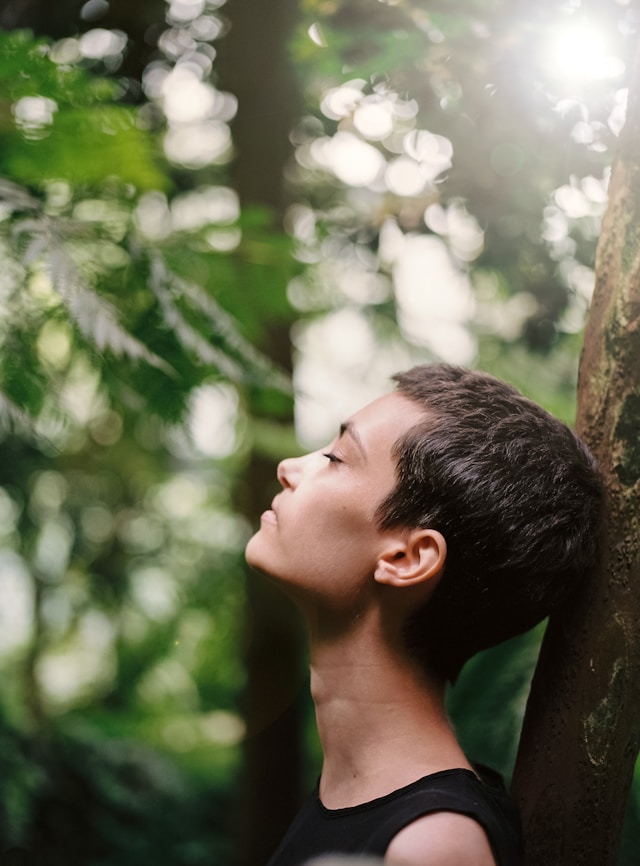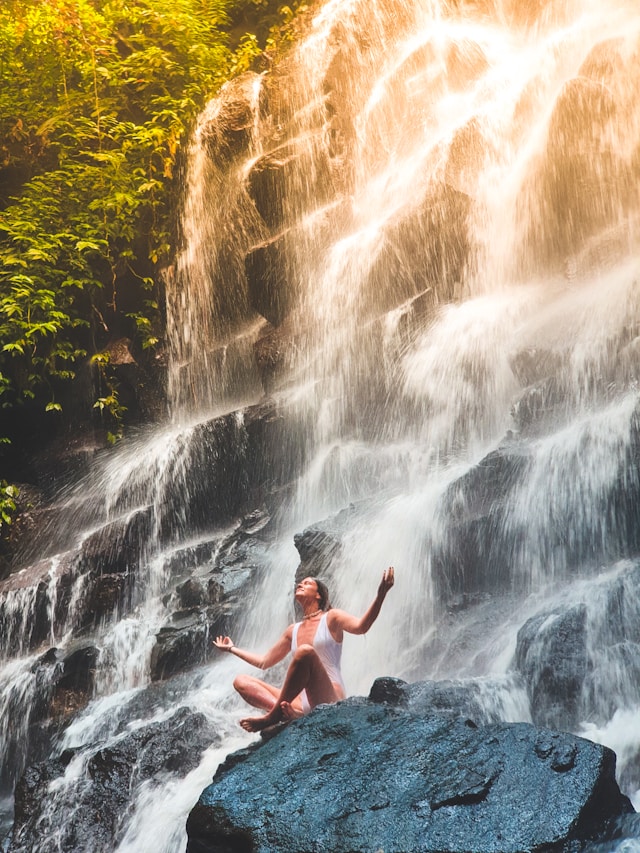Mindfulness Gratitude Quotes: Cultivate a Positive Mindset with These Inspirational Sayings
Mindfulness and gratitude are two practices that have gained increasing attention in recent years for their positive impact on mental health and overall well-being. Mindfulness involves being present in the moment and fully engaged in one’s surroundings, while gratitude involves recognizing and appreciating the good things in life. Combining these practices can lead to a powerful mindset shift and a greater sense of contentment.
One way to incorporate mindfulness and gratitude into daily life is through the use of mindfulness gratitude quotes. These quotes serve as reminders to stay present and grateful, and can be used as daily affirmations or mantras. They can also provide inspiration and motivation during challenging times, helping individuals to maintain a positive outlook and perspective.
In this article, we will explore the benefits of mindfulness and gratitude, and how mindfulness gratitude quotes can be used to enhance these practices. We will also provide a selection of powerful quotes to inspire and uplift readers. By incorporating mindfulness and gratitude into daily life, individuals can cultivate a greater sense of happiness and fulfillment, and experience a more meaningful and joyful existence.
The Essence of Mindfulness and Gratitude
Understanding Mindfulness
Mindfulness is the art of being present and aware of the current moment, without any judgment. It is a state of mind that allows individuals to observe their thoughts, feelings, and surroundings without being overwhelmed by them. Mindfulness practice involves focusing on the present moment and paying attention to one’s breath, body, and emotions. By practicing mindfulness, individuals can improve their mental and physical well-being, reduce stress, and enhance their ability to focus.
Embracing Gratitude
Gratitude is the act of appreciating and acknowledging the good things in life. It is the practice of recognizing and being thankful for the positive aspects of one’s life, such as health, relationships, and opportunities. Gratitude practice involves reflecting on the things that one is grateful for and expressing appreciation for them. By embracing gratitude, individuals can cultivate a positive outlook, increase happiness, and improve their overall well-being.
Interconnection of Mindfulness and Gratitude
Mindfulness and gratitude are interconnected practices that complement each other. Mindfulness helps individuals to be present and aware of their thoughts and emotions, while gratitude helps them to appreciate the positive aspects of their lives. By practicing both mindfulness and gratitude, individuals can cultivate a sense of inner peace, contentment, and happiness.
In summary, mindfulness and gratitude are essential practices that can help individuals to live a more fulfilling and meaningful life. By being present, aware, and appreciative of the good things in life, individuals can improve their mental and physical well-being, reduce stress, and cultivate a positive outlook.
Inspirational Quotes on Mindfulness and Gratitude
Mindfulness and gratitude are essential qualities that can help individuals lead a more fulfilling life. Inspirational quotes from renowned personalities can provide valuable insights into the power of mindfulness and gratitude. Here are some profound quotes from experts in the field.
Wisdom from Eckhart Tolle and Deepak Chopra
Eckhart Tolle, a spiritual teacher, and Deepak Chopra, a renowned author, have emphasized the importance of mindfulness and gratitude in their works. Tolle states, “Realize deeply that the present moment is all you ever have. Make the NOW the primary focus of your life.” This quote highlights the significance of staying present and mindful in the current moment.
Deepak Chopra, in his book “The Book of Secrets,” writes, “The universe is not outside of you. Look inside yourself; everything that you want, you already are.” This quote encourages individuals to look within themselves and realize that they have the power to manifest their desires through gratitude and mindfulness.
Reflections by Rumi and the Dalai Lama
Rumi, a 13th-century Persian poet, and the Dalai Lama, a spiritual leader, have also shared their thoughts on mindfulness and gratitude. Rumi said, “The quieter you become, the more you can hear.” This quote emphasizes the importance of silence and stillness in cultivating mindfulness.
The Dalai Lama stated, “The roots of all goodness lie in the soil of appreciation for goodness.” This quote highlights the significance of gratitude in creating a positive mindset and outlook on life.
Contemporary Insights from Oprah Winfrey and Jon Kabat-Zinn
Oprah Winfrey, a media executive, and Jon Kabat-Zinn, a mindfulness expert, have provided valuable insights into mindfulness and gratitude in the modern era. Oprah Winfrey said, “Be thankful for what you have; you’ll end up having more. If you concentrate on what you don’t have, you will never, ever have enough.” This quote emphasizes the importance of gratitude in attracting abundance.
Jon Kabat-Zinn, in his book “Wherever You Go, There You Are,” writes, “The little things? The little moments? They aren’t little.” This quote encourages individuals to pay attention to the small moments in life and appreciate them fully.
In conclusion, these inspirational quotes from experts in the field of mindfulness and gratitude can provide valuable insights into the power of these qualities. By cultivating mindfulness and gratitude, individuals can lead a more fulfilling and joyful life.
Practical Applications of Mindfulness Gratitude
Cultivating a Grateful Mindset
Practicing mindfulness gratitude can help individuals cultivate a grateful mindset, which can lead to increased joy and better overall health. One way to cultivate a grateful mindset is to keep a gratitude journal. This involves writing down three things each day that one is grateful for. By focusing on the positive aspects of life, individuals can train their minds to become more positive and grateful.
Another way to cultivate a grateful mindset is to practice gratitude meditation. During this type of meditation, individuals focus on the things they are grateful for and visualize themselves expressing gratitude. This can help individuals feel more positive and grateful in their daily lives.
Mindfulness Exercises for Everyday Life
Mindfulness exercises can be incorporated into everyday life to help individuals become more present and grateful. One such exercise is mindful breathing. This involves taking deep breaths and focusing on the sensation of the breath moving in and out of the body. This can help individuals become more present and aware of their surroundings, leading to increased gratitude.
Another mindfulness exercise is mindful eating. This involves focusing on the taste, texture, and smell of the food while eating. By focusing on the present moment and the experience of eating, individuals can become more grateful for the food they have.
The Role of Meditation and Breath
Meditation and breath play an important role in mindfulness gratitude. Meditation can help individuals become more present and aware of their thoughts and emotions, leading to increased gratitude. Breathwork, such as deep breathing exercises, can help individuals become more calm and centered, allowing them to focus on the present moment and cultivate gratitude.
Overall, practicing mindfulness gratitude can have numerous benefits for individuals, including increased joy, better health, and a more positive mindset. By incorporating mindfulness exercises and meditation into daily life, individuals can cultivate a grateful mindset and experience the benefits of mindfulness gratitude.
The Impact of Gratitude on Well-Being
Gratitude is a powerful emotion that can have a positive impact on one’s well-being. It is the act of appreciating and being thankful for the good things in life. Research has shown that practicing gratitude can lead to various benefits, including boosting happiness, transforming relationships and stress, and enhancing resilience and overcoming challenges.
Boosting Happiness and Positive Attitude
Gratitude can help individuals feel more positive emotions, such as joy, optimism, and contentment. It can also increase overall life satisfaction and happiness. When individuals focus on the good things in life, they are less likely to dwell on negative events or experiences.
Transforming Relationships and Stress
Gratitude can also improve relationships with others. When individuals express gratitude towards others, it can strengthen social bonds and foster positive interactions. Additionally, gratitude can help individuals cope with stress. By focusing on what they are thankful for, individuals can shift their mindset and reduce stress levels.
Enhancing Resilience and Overcoming Challenges
Gratitude can also enhance resilience and help individuals overcome challenges. When faced with difficult situations, individuals who practice gratitude are more likely to see the positive aspects of the situation and find ways to overcome it. Gratitude can also help individuals find meaning and purpose in life, which can be especially helpful during challenging times.
In conclusion, practicing gratitude can have a positive impact on various aspects of well-being, including happiness, relationships, stress, resilience, and overcoming challenges. By focusing on the good things in life, individuals can improve their overall well-being and lead a more fulfilling life.
Living with Gratitude in the Present Moment
Living in the present moment is a key tenet of mindfulness, and it is also a crucial component of cultivating gratitude. When one is fully present and aware of their surroundings, they are better able to appreciate the beauty and abundance that surrounds them. In this section, we will explore how living in the present moment can help us to cultivate gratitude in our daily lives.
The Power of Now and Acceptance
One of the most powerful ways to cultivate gratitude is to simply be present in the moment and accept things as they are. When we are fully present, we are better able to appreciate the beauty and abundance that surrounds us. We can find joy in the simplest things, like the warmth of the sun on our skin or the sound of birds singing in the morning. By accepting things as they are, we can also find gratitude in difficult situations. For example, we can be grateful for the lessons we learn from challenging experiences or for the strength and resilience we gain from overcoming obstacles.
Finding Beauty and Abundance in the Ordinary
Another way to cultivate gratitude is to find beauty and abundance in the ordinary moments of life. When we take the time to appreciate the small things, like a good cup of coffee or a kind word from a friend, we can find joy and gratitude in our everyday lives. We can also find gratitude in the people around us, like our family and friends, who support us and bring us happiness.
Expressing Gratitude as a Daily Practice
Finally, expressing gratitude as a daily practice can help us to cultivate a sense of gratitude and appreciation in our lives. This can be as simple as taking a few minutes each day to reflect on the things we are grateful for or writing down a list of things we appreciate. We can also express our gratitude to others by saying thank you or sending a thoughtful message. By making gratitude a part of our daily routine, we can cultivate a more positive and grateful mindset.
In conclusion, living in the present moment and cultivating gratitude go hand in hand. By being fully present and aware of our surroundings, we can appreciate the beauty and abundance that surrounds us. We can also find gratitude in the ordinary moments of life and express our appreciation as a daily practice. By cultivating gratitude in our lives, we can experience more joy, love, and abundance.
Frequently Asked Questions
What are some impactful quotes that combine mindfulness and gratitude?
Some impactful quotes that combine mindfulness and gratitude are: “Gratitude unlocks the fullness of life. It turns what we have into enough, and more. It turns denial into acceptance, chaos to order, confusion to clarity. It can turn a meal into a feast, a house into a home, a stranger into a friend.” – Melody Beattie, and “When you arise in the morning, think of what a precious privilege it is to be alive – to breathe, to think, to enjoy, to love.” – Marcus Aurelius.
How can gratitude enhance a mindfulness practice?
Gratitude can enhance a mindfulness practice by helping individuals to focus on the present moment and appreciate the positive aspects of their lives. By cultivating gratitude, individuals can train their minds to notice the good things in their lives, which can help to reduce stress, increase happiness, and improve overall well-being.
Can you share a quote that encapsulates gratitude within the context of yoga?
“Gratitude is the open door to abundance.” – Yogi Bhajan.
What are some notable quotes about the transformative power of gratitude?
Some notable quotes about the transformative power of gratitude are: “Gratitude makes sense of our past, brings peace for today, and creates a vision for tomorrow.” – Melody Beattie, and “Gratitude is not only the greatest of virtues but the parent of all others.” – Marcus Tullius Cicero.
How do mindfulness and gratitude intersect according to well-known sayings?
According to well-known sayings, mindfulness and gratitude intersect in the sense that mindfulness helps individuals to be present and fully engaged in the moment, while gratitude helps individuals to appreciate and be thankful for what they have in their lives. Together, mindfulness and gratitude can help individuals to lead more fulfilling and meaningful lives.
What are some expressions that reflect the relationship between kindness and gratitude?
Some expressions that reflect the relationship between kindness and gratitude are: “Gratitude is the memory of the heart,” and “As we express our gratitude, we must never forget that the highest appreciation is not to utter words, but to live by them.”




